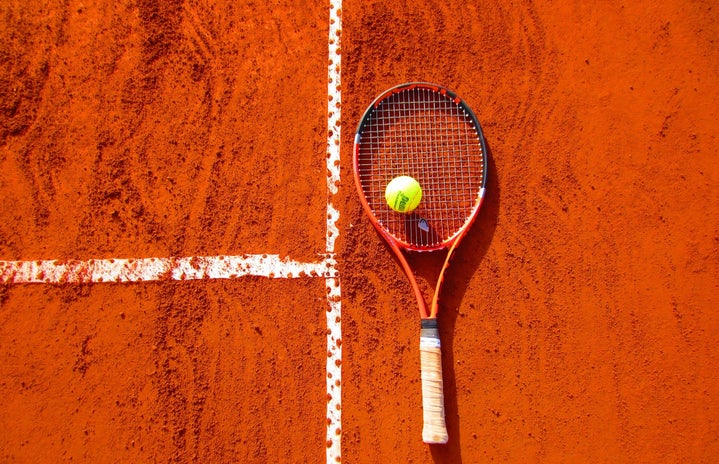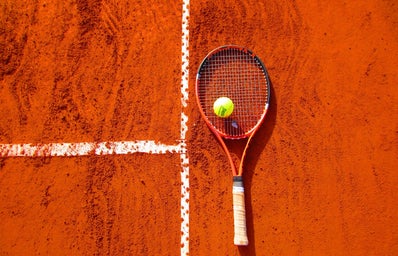Serena Williams has been a household name since she won her first Grand Slam tournament at age 17. Now, at 38, she’s continuing to dominate the tennis world, winning 23 grand slam titles — one short of the all-time record. Her resume is impressive, including starting her own fashion line, hosting the Met Gala and becoming a co-owner of an NWSL team in Los Angeles. However, she cites none of these as her greatest accomplishment. In September 2017, Williams added one more title to her resume: Mother.
When Williams won that 23rd major tournament, she was pregnant with her daughter Olympia, who is now three. Her path to tying the all-time title record would have been complicated regardless with hundreds of new, younger players entering the tour — however, that path has been complicated further with the added challenge of getting back into shape following a highly-publicized pregnancy and navigating life as a new mom.
But Williams has met that challenge with the fiery skill that earned her the title of the tennis “GOAT.” Since coming back on the tour less than a year after giving birth, Williams has reached four Grand Slam finals and most recently, the U.S. Open semifinal, losing to fellow mom Victoria Azarenka. The fact that she hasn’t been able to win a championship match since Olympia’s birth can be attributed to dozens of factors, but her critics are crediting it to one extremely negative factor: “She’s just not the same Serena she was before giving birth.”
This simply isn’t true. While her game may have evolved, she’s still the same passionate player that debuted 25 years ago. The hurdles she had to overcome to make a comeback in the first place are impressive — after a complicated birth and rocky road to recovery, it took longer for Williams to grace the court again than she had intended after she had initially promised fans she would be returning at the 2018 Australian Open, a year after winning her 23rd title (while pregnant). Upon her return, she was faced with players who had found themselves comfortable in their own ability during her absence, forcing Williams to adapt to a tour that had evolved without her.
But Serena evolved too. She found her way back into the tour, making it to the finals of both Wimbledon and the U.S. Open less than four months after her comeback began (again, less than a year after giving birth). She faced some tough opponents in the finals of these matches, and was even met with a controversial call in the U.S. Open final when she got into an argument with the chair umpire after he accused her of illegally receiving coaching from her coach (which Williams adamantly denied). However, Williams forged on, making it deep into a majority of her 2019 tournaments, including the Wimbledon and U.S. Open finals for a second year in a row. Her failure to lock these titles up wasn’t due to her inability to keep up with the competition, as her critics claimed — she proved them wrong by getting to four major finals in the first place. While we might never know what caused her to not be able to lock up her 24th title in that time, what we do know is that she came back with the same fire that she had before, and it carried her farther than we all expected after giving birth.
This is why we need to be paying attention to Serena Williams, especially this tennis season. Her grit displayed at the U.S. Open (playing four three-set matches, something that would take a toll on even the youngest of legs) shows that she still has the drive to push herself physically and mentally, which is inspiring in its own right. Now, she’ll be attempting to collect that 24th title for the second time this month, due to the COVID-19 crisis pushing the French Open start date from May to September. Regardless of how far she gets, she’s showing how she can impact the tennis world, proving that a mom can continue to play at the top level as players as young as 15. However, she’s Serena — it’d be more surprising if she didn’t make it far, especially with her recent record.
Williams should be an inspiration to everyone, but especially women who have been told they can’t do something. She approaches the accusation of “you can’t do this” with a “watch me” mentality, which is an empowering mentality for anyone to adopt. Her constant willpower to overcome any obstacle thrown in her way is a testament that you CAN do anything, even if it’s trying to win a record 24th major tournament after coming back from a complicated pregnancy and recovery. She’s a role model for her daughter, along with women all over the world, showing us how to never give up. She’s the GOAT and a legend in her own right, but also a mother, and one that can teach the world what women- and moms- can do. Keep watching Serena Williams — she has a lot more to teach the world.


